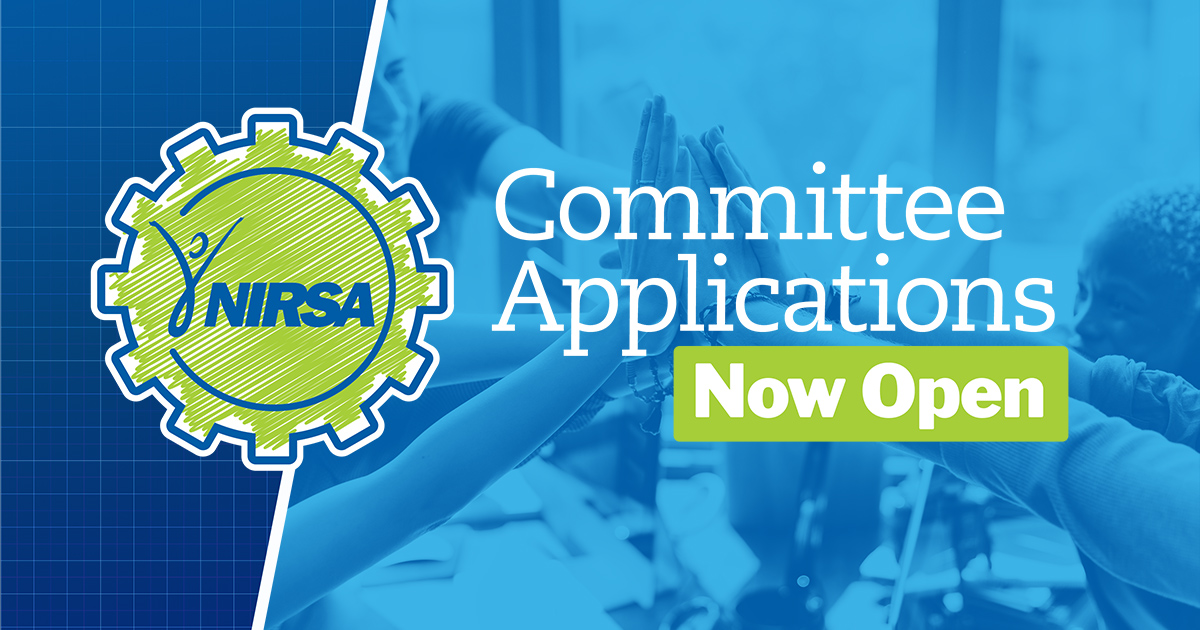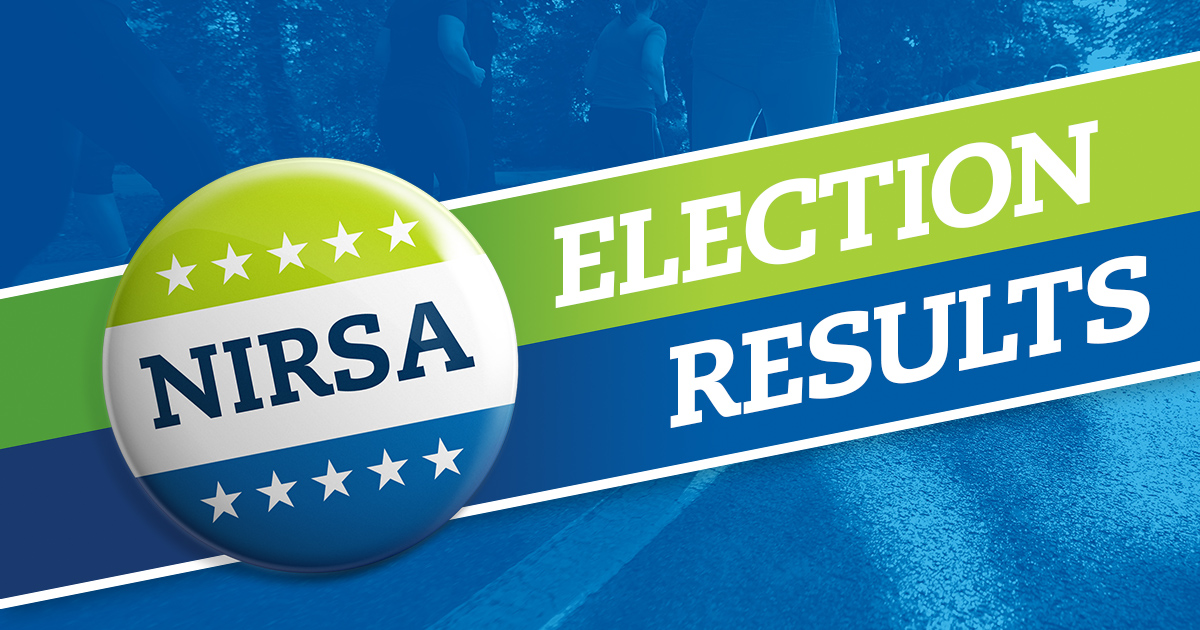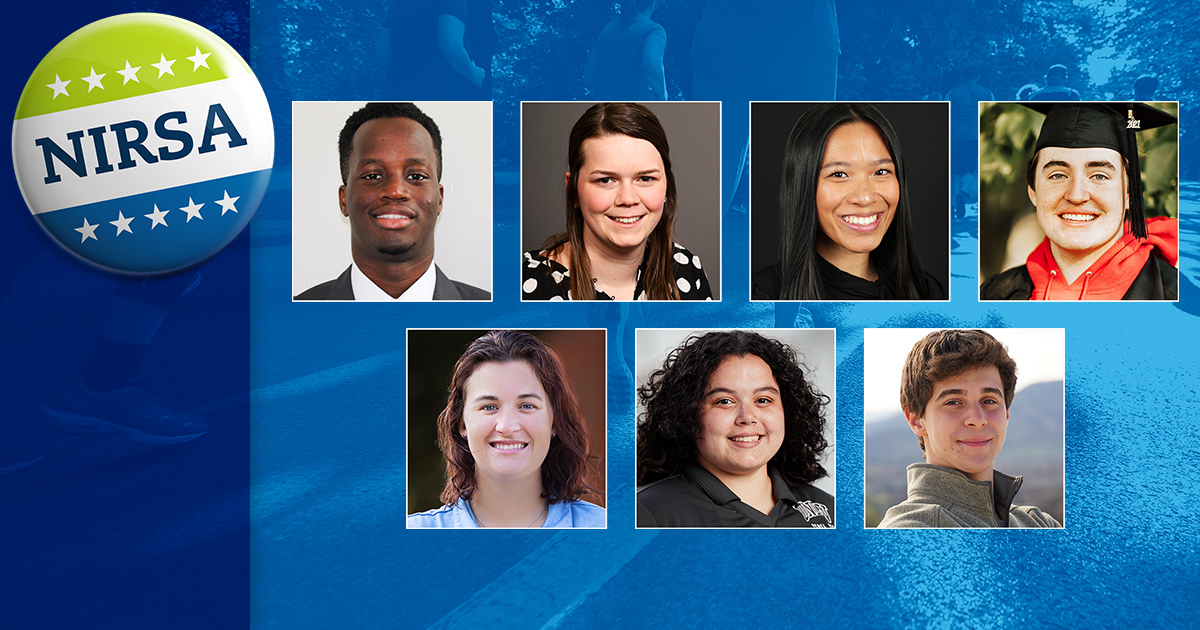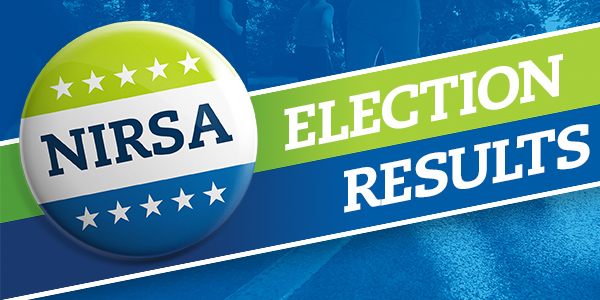Many people traditionally use the beginning of a new year to reflect on the last 12 months and set goals for the new year ahead. It’s never too early or too late to start that reflection, and with applications for NIRSA volunteer groups now open, perhaps it’s time to consider how you could be more involved with NIRSA in the coming year. Applications are due Thursday, February 9!
The Student Staff Development Task Force. is comprised of NIRSA members from diverse backgrounds and with many different perspectives. From academics to outdoor programmers, from new professionals to “seasoned” campus rec experts, from individuals with student development backgrounds to people with traditional recreation backgrounds, this progressive committee brings together people of diverse backgrounds. This unique volunteer group has become a community of learners whose members all have one goal in mind: providing developmental opportunities for students working in campus recreation. We seek to learn from each other so that we can help students to develop in meaningful and innovative ways and make their employment experiences the most beneficial to them during their college experience and beyond.
Based on our experiences as current committee volunteers, here are three examples of what we’ve gained from serving on the Student Staff Development Task Force.
Make connections within NIRSA and share ideas for how to help students succeed
The members of this task force come from a variety of backgrounds and experience levels, but every volunteer is deeply committed to the success of the students who work for them. The task force meets regularly and provides a wonderful opportunity for you to network with others across the Association. It is a great opportunity to share some of the tricks and tips you have learned during your career, as well as to pick up a few brilliant ideas from others. Not only do we create opportunities for the sharing of student development resources, but we also provide resources to help new and emerging professionals who are supervising students for the first time.
“I thoroughly enjoyed gaining tips, tricks, and ideas from colleagues across the country as we shared ideas for student development. The other members of the task force became invaluable sounding boards for me,” says Katie Burns, Associate Director of Campus Recreation at Utah State University.
“As someone who started their collegiate recreation career outside of the profession, I have found great value in the network of dedicated professionals who belong to NIRSA. Being on the Student Staff Development Task Force has provided many opportunities to connect with others who share similar professional problems, spark new ideas, teach me something, or make me aspire for greater things,” says Matthew Altendorf, Manager – Strategy & Organizational Effectiveness at The Ohio State University. “Not only have I gotten to know the wonderful people on the task force, but I am surprised by the doors this involvement has opened at conferences, in webinars, and even when I pick up my office phone. The laughs, memories, and friendships developed through my involvement on this task force continue to brighten my career in collegiate recreation,” Matt adds.
Gain a platform to share your experiences developing students and young professionals
If nothing else, we can all agree that the last few years have presented us with an array of challenges; everything from a pandemic to the changing expectations of work culture to having to respond to the increasing mental health demands of the communities we serve. As students and collegiate landscapes continue to change, recreation professionals must remain nimble and adaptable to keep their staff engaged, invested, and growing. This group has served as a great forum for sharing ideas regarding how to address these challenges head on. It is a great place to share ideas and bring insights back to your home institution.
Sam Trapp, Assistant Director of Personnel Development, Engagement & Assessment in Campus Recreation at Tulane University, shares this reflection: “This task force brings together diverse folks in all stages of their careers—individuals from different institution sizes and types—who all share an interest in student development. The other task force members’ approaches to student development transform higher education theory into practical applications that I can bring back to my university. As a younger professional, student development seemed daunting. But the expertise shared by my fellow task force volunteers makes me feel like I’m part of cutting-edge conversations about student staff development while the task force’s support makes me feel like I have a place to reflect, share, assess, and try out new ideas.”
Engage others and yourself in professional development
This is an active volunteer group; since its inception in 2020, volunteers have facilitated many round table discussions, released student staff and professional staff competencies, authored Campus Recreation Essentials: Student Staff Training & Development, produced monthly content for NIRSA members to access via NIRSA Connect, and facilitated a preconference session at the NIRSA Annual Conference.
Since September 2022, we have produced monthly, thought-provoking content for the NIRSA membership. Shortly after new content is released we host an online roundtable discussion to discuss the ideas that were presented. You can check out our latest content focused on assessment on January 11, with the follow-up roundtable discussion taking place on Wednesday, January 18. There is also always the opportunity to engage in discussions via the Student Development Community on NIRSA Connect where you can post questions, provide resources for others, or explore a wealth of content that has been shared to date.
“Being a part of the Student Development Task Force has given me the opportunity to work with a slew of folks from across the country. The task force pushed me to grow and develop through subcommittee work and by offering me an opportunity to present at the NIRSA Annual Conference in 2022,” says Chris Bullard, Outdoor Programs Senior Coordinator at Portland State University. “I’d highly recommend applying to get connected with folks who are passionate about developing students through recreation.”
Serving on a committee or task force like the Student Development Task Force can help broaden your perspective, surface new ideas you can back to your campus, and add to your professional experience.
- For more information about the process and all NIRSA volunteer opportunities, please join our Volunteering with NIRSA Information Session on Tuesday, January 17 at 1:00pm Eastern/10:00am Pacific.
The Student Staff Development Task Force was created to develop a thriving community where members can have ongoing conversations regarding best practices, as well as share resources.






